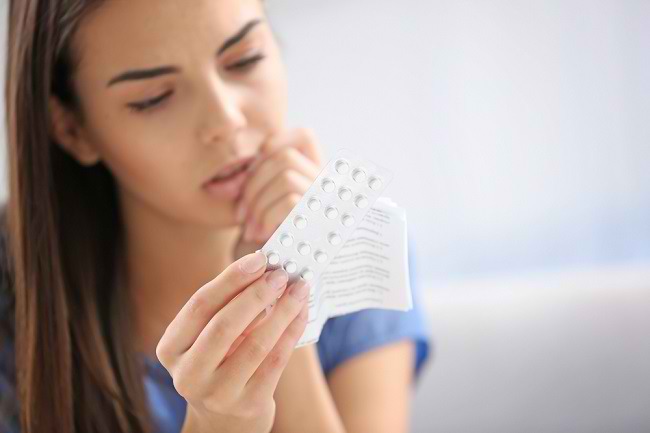Desloratadine is a medication to relieve allergy symptoms, such as itchy skin, watery eyes, or hives. The drug, which is available in tablet and syrup form, should only be used in accordance doctor's prescription.
Desloratadine is a second-generation antihistamine that works by blocking histamine. Histamine is a natural substance in the body that triggers allergy symptoms when the body is exposed to allergens (allergens).

Trademarks of desloratadine: Desdin Desfumed Desloratadine Deslo Delosdin Destavell
What is Desloratadine
| group | Prescription drugs |
| Category | Antihistamines |
| Benefit | Relieves allergy symptoms |
| Consumed by | Adults and children |
| Desloratadine for pregnant and lactating women | Category C: Animal studies have shown adverse effects on the fetus, but there are no controlled studies in pregnant women. Drugs should only be used if the expected benefit outweighs the risk to the fetus. Desloratadine may be absorbed into breast milk. If you are breastfeeding, do not use this medicine without consulting your doctor first. |
| Drug form | Tablets and syrup |
Warnings Before Taking Desloratadine
There are several things you should pay attention to before taking desloratadine, including:
- Do not take desloratadine if you are allergic to this drug. Tell your doctor about any allergies you have.
- Tell your doctor if you have or have had kidney disease, epilepsy, liver disease, diabetes, or phenylketonuria.
- Tell your doctor if you are taking certain medications, supplements, or herbal products.
- Tell your doctor if you are pregnant, breastfeeding, or planning a pregnancy.
- If you are planning to have surgery or allergy testing, tell your doctor that you are taking desloratadine.
- Avoid driving and doing activities that require alertness while taking desloratadine, because the drug may cause drowsiness in some people.
- See your doctor right away if you have an allergic reaction, serious side effects, or overdose after taking desloratadine.
Dosage and Rules of Use Desloratadine
The dose of desloratadine varies in each patient. The doctor will determine the dose according to the age and condition of the patient. In general, the following are the dosages of desloratadine for allergic reactions:
- Mature: 5 mg, once a day
- Children aged 6–11 months: 1 mg, once daily
- Children aged 1–5 years: 1.25 mg, once daily
- Children aged 6–11 years: 2.5 mg, once daily
How to Take Desloratadine Correctly
Take desloratadine according to the doctor's advice and the instructions on the medicine package. Do not change the dose without consulting your doctor first. Desloratadine can be taken before or after meals.
If you take desloratadine in syrup form, be sure to use the measuring spoon provided in the package.
If you forget to take desloratadine, take it as soon as you remember. If it is near the time of your next dose, ignore the missed dose. Do not double the dose of desloratadine to make up for a missed dose.
Store desloratadine at room temperature and place in a closed container. Keep the medicine away from direct sunlight and out of reach of children.
Interactions of Desloratadine with Other Drugs
Taking desloratadine with ketoconazole, fluoxetine, erythromycin, cimetidine, or azithromycin can increase the level of desloratadine in the blood. To be safe, consult your doctor if you plan to use desloratadine with other medications.
Side Effects and Dangers of Desloratadine
Some of the side effects that can occur after taking desloratadine are:
- Sore throat
- Diarrhea
- Sleep disturbance
- Tired or lost appetite
- Nausea or stomach ache
Check with a doctor if the complaints mentioned above do not go away or get worse. Immediately see a doctor if you experience an allergic reaction to the drug which can be characterized by symptoms such as swelling of the eyelids or lips, shortness of breath, or an itchy rash on the skin.









